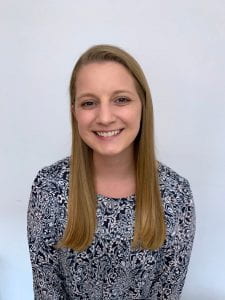Note: Due to the ongoing pandemic, the Delaware Project student award will not be offered this year. The award is designed to fund travel. Given the current plans for virtual conferences, we will be reserving those limited funds for future years where we look forward to meeting in-person again. We hope that 2022 will bring these conferences back, so please look for the student award at that time and keep doing the great integrated science that epitomizes the DP.
Scroll down to see our 2020 award winner and honorable mentions!
The Delaware Project student award recognizes excellence in research that links laboratory and community settings. This award will be presented to a student whose work generates new knowledge that helps bridge the science to service gap in mental health care. The successful applicant’s work will have the potential to impact the community by reducing the burden of mental illness on society through scientific solutions to “real-world” problems. Consistent with the Delaware Project vision, special consideration will be given to innovative research that translates clinical science to community-based treatment, assessment development, delivery, adaptation, or similar activities.
The Delaware Project student award winner will receive (1) recognition for their work at both the Academy of Psychological and Clinical Science (APCS) meetings associated with the APS conference as well as the Dissemination & Implementation Science Special Interest Group (DIS-SIG) meeting at the ABCT conference; (2) an opportunity to give a brief presentation to the members of the APCS on their research and its relevance to the future of clinical psychology training; and (3) a $1,000 award to subsidize attendance at the aforementioned conferences. Attendance at the APCS meeting is required. Attendance at the DIS-SIG is not required but is encouraged.
How graduate students may apply:
Through the form below, applicants will submit a single-spaced 2-4 page document (not including a reference list) in PDF format that includes: a) a brief summary of their research project, including any current findings, b) the potential impact of their work for bridging the science to service gap in community mental health care, c) a description of the unique training opportunities afforded the student through their work, and d) a personal statement that describes how their own work reflects the Delaware Project vision of clinical psychology training and has benefited their development as a future leader in the field.
Evaluation of applications:
Applications will be evaluated by a review committee of faculty formed from various clinical psychology training programs involved with the Delaware Project. The applications will be evaluated for scientific merit, potential impact of the work on community mental health, and implications for clinical psychology training as outlined by the Delaware Project vision. Winners will be notified by email as soon as possible in order to make travel and presentation arrangements for the APCS and ABCT DIS-SIG meetings.
Key dates:
*We will not be accepting applications this year due to the pandemic. However, the following are historically key dates in the event that you are interested in applying in the future.
March: Applications due
May: Winner recognition and presentation at APCS meeting at the APS conference
November: Winner recognition and presentation at ABCT DIS-SIG meeting
2020 Award Winner and Honorable Mentions
Award Winner:
Molly McNamara (University of Texas at Austin)
Given the burden and prevalence of major depressive disorder (MDD), Internet-based interventions like Deprexis appear to be a promising treatment option. However, while effective at reducing symptomology and improving functioning, (Meyer et al. 2009; Twomey, O’Reilly, and Meyer 2017), internet-based interventions have struggled since their advent with retention issues. The potential of internet interventions appears to be stymied at least in part by their ability to retain users and engage them in treatment. Further, we have very little understanding of factors that relate to this engagement.
In this project, we used 10-fold cross-validated random forest models to predict two groups of outcomes: adherence to Deprexis (operationalized as usage of Deprexis of at least 60 minutes), and time spent (in minutes) in each individual modules. This was a secondary analysis of a large (n = 376) randomized controlled trial evaluating the effectiveness of the English version of Deprexis (Beevers et al. 2017). Predictors included in the models were all pre-treatment variables including sociodemographic data, self-report measures of symptomology and symptom severity, treatment expectations, concurrent treatment, family history of psychopathology, and participant’s neighborhood demographics (e.g., total crime risk, median disposable income, median travel time to work, etc.). Additionally, we computed variable importance estimates from the random forest models.
Our preliminary findings suggest the novel neighborhood demographic variables, including total crime rate, population density, median age in the neighborhood, and median travel time to work, were some of the best predictors of Deprexis engagement. This suggests that those users who are most likely to engage with depression are those who tend to live in older, safer, and more affluent neighborhoods. Much of the appeal of online interventions including Deprexis is they appear to be an ideal solution for individuals who could not otherwise access treatment. When we think about trying to disseminate treatment to individuals who cannot otherwise access it, we tend to think of people who live in less affluent environments, further away from urban centers. Yet in this analysis, our preliminary results are suggesting the people least likely to use Deprexis came from poorer, more population-dense neighborhoods, with higher rates of total crime. In other words, the people whose hands we want to get these interventions into are the ones least likely to engage with it, even when the treatment is available to them free of charge. This could highlight a broken link in the chain from treatment development to dissemination that warrants future research to better understand what malleable factors might be hampering treatment engagement within this population.
Honorable Mentions (in alphabetical order):
Jennifer Bertollo (Virginia Tech)
Early detection and subsequent early intervention are crucial for optimal outcomes in autism spectrum disorder (ASD), but access to such services is often reduced or lacking in rural communities. In fact, average age of diagnosis in rural communities is later than elsewhere, putting these individuals at a uniquely high risk for missed intervention opportunities and poor outcomes. Reported barriers to ASD services by parents in rural Southwest Virginia include few providers knowledgeable in ASD, unaffordability, and geographic isolation. Additionally, many parents whose children receive an ASD diagnosis report that providers did not then provide them with ASD resources or educational materials.
In an attempt to overcome these barriers, the current pilot study provides free comprehensive ASD assessments that are accessible to families, by having clinicians conduct the assessments on a Mobile Autism Clinic (MAC) that travels to or near families’ hometowns. Following a feedback session with parents to review diagnoses and recommendations, parents are randomized into one of three psychoeducation conditions: (1) In-Person Psychoeducation Sessions, (2) Telehealth Psychoeducation Sessions, or (3) Paper Informational Materials. In addition to assessing the feasibility of this novel service delivery model, we are also measuring parental ASD knowledge, self-efficacy, and empowerment to seek and provide appropriate care for their child, collected throughout our program and at 6-week follow-up. Our target sample is 30 children (ages 18 months through 17 years) and their parents; to date, we have enrolled and assessed 15 children.
Thus far, we have found our service delivery model and timeline to be feasible, begun to identify specific barriers to this geographic region (i.e., severe weather prevents driving the MAC, parents’ limited phone/Internet access in this area), and received positive parent feedback. These findings will be used to build supports that directly mitigate participation problems in real-world mobile service delivery and directly inform implementation formats that can be used to provide timely diagnoses and ASD education to rural families, thereby empowering them to seek and obtain additional educational and community services for their child with ASD.
Jennifer Buchholz (University of North Carolina – Chapel Hill)
Despite empirical support for the efficacy of exposure therapy for anxiety-related disorders, many individuals who receive this intervention fail to recover or experience a return of fear after treatment. Inhibitory learning theory has informed novel approaches to exposure therapy that aim to improve both short- and long-term outcomes. One exposure optimization strategy is to maximize expectancy violation (i.e., the difference between expected outcomes and actual outcomes), which is thought to strengthen inhibitory (i.e., safety) associations and enhance long-term fear extinction. In practice, exposure therapy is often preceded by cognitive restructuring, which is designed to lessen the magnitude of harm expectancies. This technique may restrict the discrepancy between expected outcomes and actual outcomes, thus reducing the potency of exposure therapy and limiting the durability of treatment gains. Although theoretically plausible, this hypothesis has not yet been investigated empirically. Accordingly, the present study aims to examine the effects of maximizing expectancy violation during exposure therapy for spider phobia by randomly assigning participants to one of three intervention conditions: (a) cognitive restructuring before exposure, (b) exposure before cognitive restructuring, and (c) stress management. The mediating effects of expectancy violation and surprise will also be investigated. Study findings will both expand the body of empirical literature on inhibitory learning and directly translate to clinical recommendations regarding the use of cognitive restructuring in conjunction with exposure therapy.
Stephanie Yu (University of California – Los Angeles)
Racial/ethnic minority youth, such as Latinx and Asian American adolescents, are less likely to access mental health services (MHS) for suicidal thoughts and behaviors in comparison to their non-Hispanic White (NHW) peers (Pirkis et al., 2003; Wu et al., 2010). School-based MHS have emerged as pathways for reducing racial/ethnic disparities as first response contexts for suicidal youth (Cummings, Ponce & Mays, 2010; Jaycox et al., 2010). However, implementation of evidence-based suicide prevention practices in schools remains challenging due to resource and provider constraints, and misalignment of educational versus health missions (McKintosh et al., 2009). School stakeholder input is needed to co-create adaptations to suicide prevention protocols not initially designed for schools.
The Family Intervention for Suicide Prevention (FISP) – involving a youth and family therapeutic crisis session and three structured phone contacts to motivate families toward MHS linkage – was shown to improve follow-up MHS access after emergency department visits (Asarnow et al., 2011). With its focus on family engagement and motivation, the FISP may be uniquely suited to addressing racial/ethnic minority disparities in youth MHS linkage where caregiver consent is a concern, if appropriately adapted for schools (Kim et al., 2018; Kodish et al, 2019; Yeh et al., 2005). From California school districts that have attended state-mandated suicide prevention trainings from the Los Angeles County Department of Mental Health and Office of Education, we are recruiting 30-40 school stakeholders involved in suicide risk response (e.g., district leaders, frontline providers) to participate in a series of semi-structured interviews and focus groups. Interviews will examine school districts’ practices and policies for suicide risk assessment and referral, as well as their organizational readiness for implementing FISP within their districts. Using a Nominal Group Technique (Harvey et al., 2012), focus groups will illuminate barriers and co-design adaptations for implementing the FISP in California schools serving primarily racial/ethnic minority families. Consistent with the Framework for Reporting Adaptations and Modifications – Expanded (FRAME; Stirman et al., 2019), focus groups will identify barriers and corresponding adaptations to intervention content and implementation strategy to meet local needs across levels of school district, providers, and families. By collaborating with school stakeholders, this study will lay the groundwork for a rapid prototyping pilot study, yielding generalizable knowledge about school-based implementation to address the youth suicide crisis across racial/ethnic groups.
Previous Award Winners
2019 – Jennifer Duchshere (University of Arizona)
2018 – Joanna Kim (University of California, Los Angeles)
2017 – Davielle Lakind ( University of Illinois, Chicago)
2016 – Nicole Gumport (University of California, Berkeley
Frequently Asked Questions
Question: If I do not win this year, can apply next year? Answer: Yes, please apply again!
Question: If I earn an honorable mention, can I apply again next year?Answer: Yes, please apply again!
Question: How does the review process work? Answer: Applications are reviewed by representatives from the Academy for Psychological Clinical Science (APCS), the Association of Behavioral and Cognitive Therapies, Dissemination & Implementation Special Interest Group (DIS-SIG), and the University of Delaware. Applications are scored based on a number of factors (e.g., fit with the DP vision, scientific merit, benefit to the community). The winner is chosen based on scores on those factors.
Question: What if I have questions not answered on this page?Answer: You can email the Delaware Project graduate student representative, Zachary Meehan, at meehanz@udel.edu.




